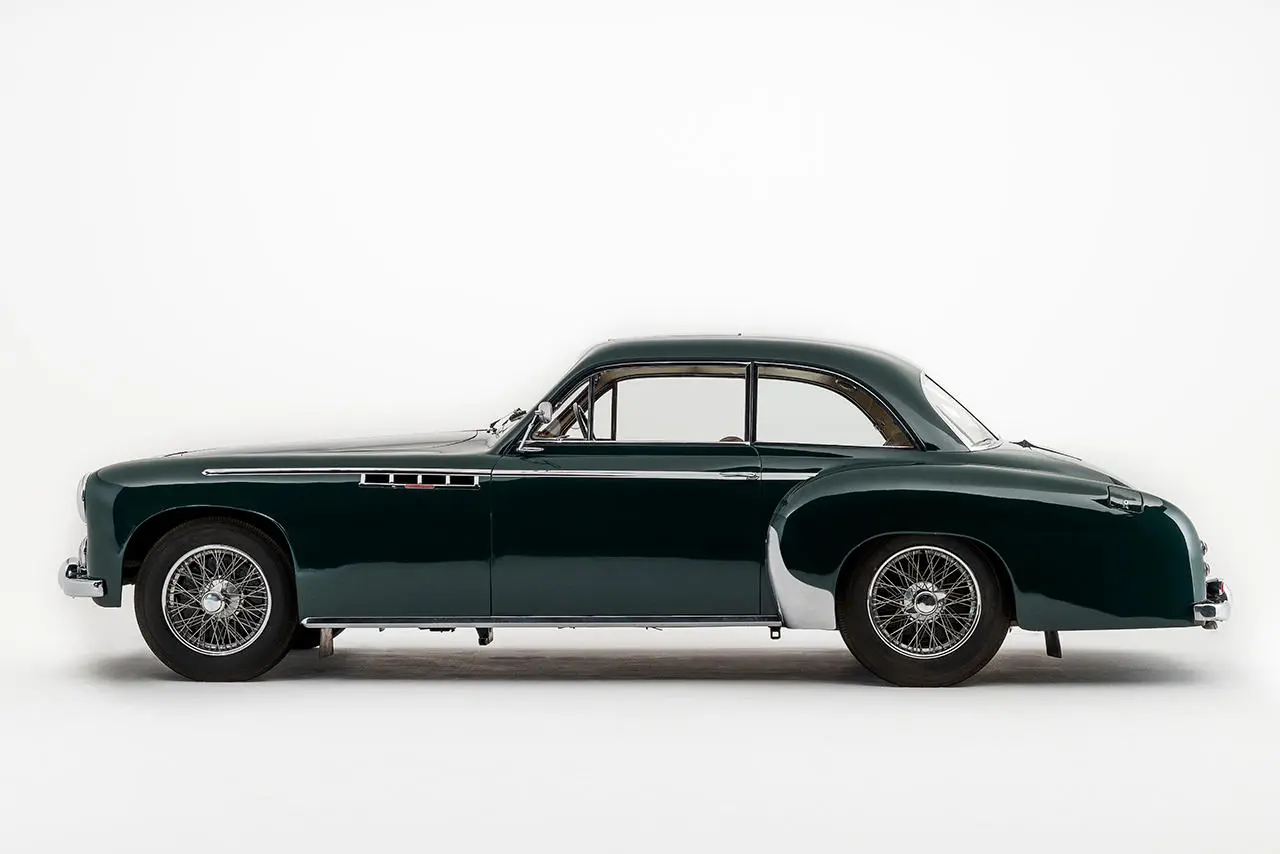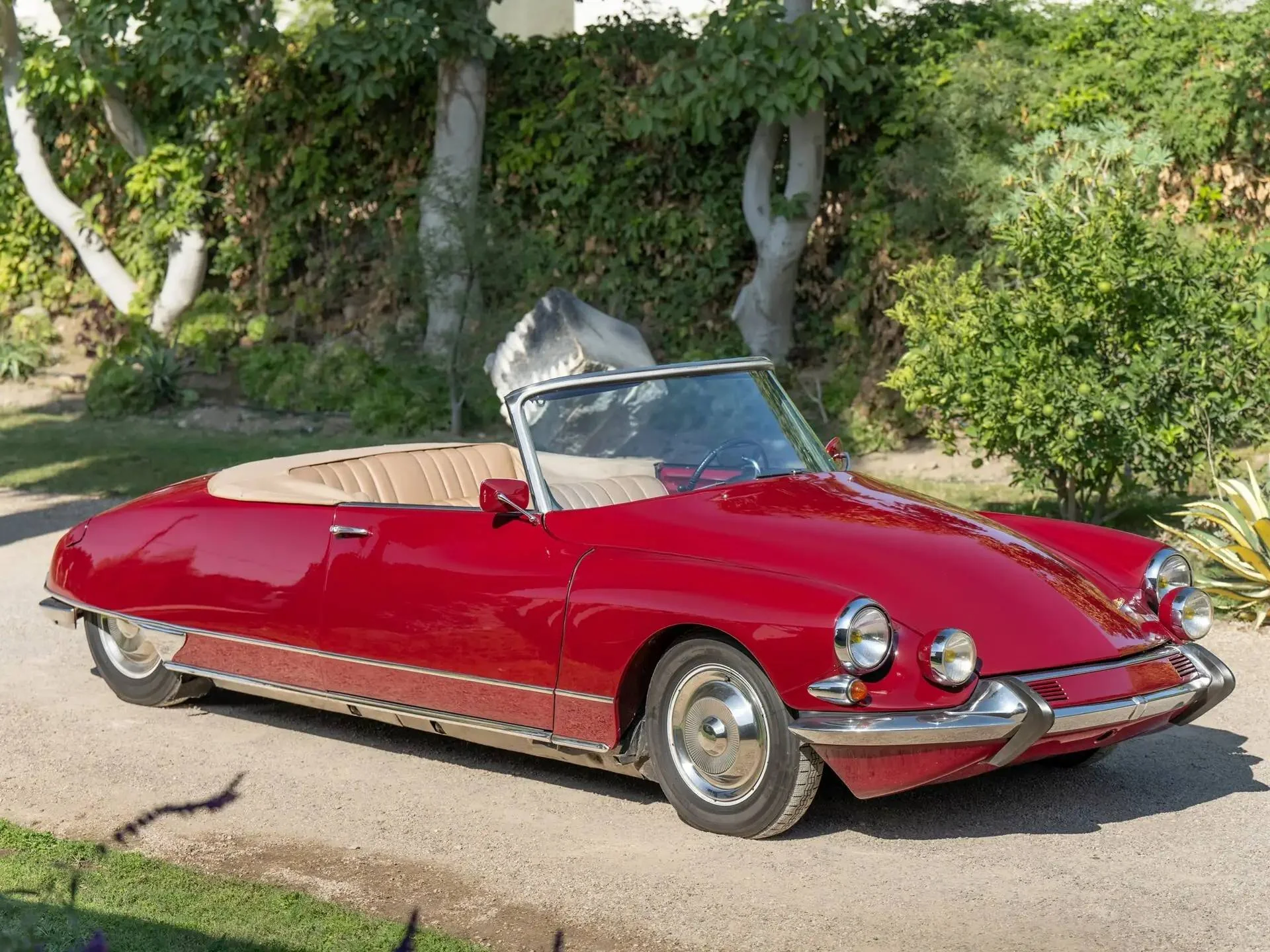Los 5 mejores modelos de Henri Chapron
Henri Chapron (30 de diciembre de 1886 - 14 de mayo de 1978) fue un destacado carrocero francés. Su taller de carrocerías, creado en 1919, estaba ubicado en el suburbio parisino de Levallois-Perret.
Henri Chapron fue el único maestro carrozador de la época dorada de los carroceros franceses que supo armonizar lo artesanal con lo industrial. Desde 1927, su taller se encontraba en los números 114 y 116 de la calle Aristide Briand en Levallois-Perret. Chapron era prácticamente el último representante de la prestigiosa escuela de carroceros de Francia y acababa de construir un automóvil descapotable a partir de un Tracción de seis cilindros y suspensión hidroneumática para las ceremonias oficiales del presidente de la República Francesa.
Henri Chapron nació en 1886 en un pequeño pueblo cercano a Orléans. Aprendió el oficio en diversos talleres parisinos antes de establecer su propio negocio en Neuilly en 1919. Tras el fin de la Primera Guerra Mundial, Chapron adquirió excedentes de vehículos militares, entre ellos numerosos Ford T, y los transformó en atractivos turismos. Las tres décadas siguientes, salvo el paréntesis de la Segunda Guerra Mundial, fueron el periodo de mayor esplendor para los carroceros franceses en general y, en particular, para Chapron, quien diseñó elegantes y sobrias carrocerías bicolores sobre chasis de marcas como Delage, Hispano-Suiza, Talbot y Delahaye. Los diseños de Chapron se caracterizaban por el tono contrastado de la línea de cintura y de los guardabarros, que aligeraban las formas del automóvil.
A mediados de los años cincuenta, la desaparición de las marcas de lujo francesas complicó la situación para los carroceros, ya que el proteccionismo hacía prácticamente inviable la importación de chasis extranjeros. Además, la mayoría de las personas tenían necesidades más básicas que encargar una carrocería exclusiva. Esto llevó a una reconversión forzosa de las firmas carroceras de prestigio que no querían desaparecer. Para finales de 1955, Carrosserie Saoutchik suspendió pagos, mientras que Henri Chapron Carrossier recibía cada vez más encargos de los propios fabricantes de automóviles. La diferencia entre estos dos maestros radicaba en que Chapron transformó su taller en una industria auxiliar que, además de realizar proyectos para las marcas de coches, seguía diseñando y construyendo pequeñas series basadas en modelos de gran producción.
Un ejemplo de esta nueva forma de trabajar es la intervención de Henri Chapron en la realización de varias piezas de chapa para los prototipos del Citroën DS. Entre 1958 y 1974, Chapron fabricó casi trescientas unidades exclusivas basadas en el revolucionario automóvil de suspensión hidroneumática. Cuatro modelos diferentes de carrocería (Le Dandy, Le Paris, Concorde, Le Léman), tres cabriolets (La Croisette, Le Caddy y Palm Beach), y las berlinas de lujo Majesty y Lorraine expresan, en su variedad, una forma muy personal de diseñar cuyo mayor mérito es embellecer aún más las inconfundibles líneas del DS.
Chapron Top 5:
-Delage D8
-Delahaye 135
-Delahaye 235
-Citroën DS Convertible
-Renault Frégate
Chapron Top 5 models
Henri Chapron (30 December 1886 - 14 May 1978) was a prominent French coachbuilder. His coachbuilding workshop, established in 1919, was located in the Paris suburb of Levallois-Perret.
Henri Chapron was the only master coachbuilder of the golden age of French coachbuilders who managed to harmonise craftsmanship with industrial production. Since 1927, his workshop was located at 114 and 116 Aristide Briand Street in Levallois-Perret. Chapron was virtually the last representative of the prestigious French coachbuilding school and had just built a convertible car based on a six-cylinder Traction with hydropneumatic suspension for the official ceremonies of the President of the French Republic.
Henri Chapron was born in 1886 in a small village near Orléans. He learned the trade in various Parisian workshops before establishing his own business in Neuilly in 1919. After the end of the First World War, Chapron acquired surplus military vehicles, including numerous Ford Ts, and transformed them into attractive touring cars. The next three decades, except for the hiatus of the Second World War, were the period of greatest splendour for French coachbuilders in general, and for Chapron in particular, who designed elegant yet sober two-tone bodies on chassis from brands such as Delage, Hispano-Suiza, Talbot, and Delahaye. Chapron's designs were characterised by the contrasting tone of the waistline and fenders, which lightened the forms of the car.
By the mid-1950s, the disappearance of French luxury car brands had complicated the situation for coachbuilders, as protectionism made the import of foreign chassis virtually unviable. Moreover, most people had more basic needs than commissioning an exclusive body. This led to a forced conversion of prestigious coachbuilding firms that did not want to disappear. By the end of 1955, Carrosserie Saoutchik had suspended payments, while Henri Chapron Carrossier was receiving an increasing number of orders from car manufacturers themselves. The difference between these two master craftsmen lay in the fact that Chapron transformed his workshop into an auxiliary industry which, in addition to undertaking projects for car brands, continued to design and build small series based on mass-produced models.
An example of this new way of working is Henri Chapron's involvement in the production of several sheet metal parts for the Citroën DS prototypes. Between 1958 and 1974, Chapron manufactured nearly three hundred exclusive units based on the revolutionary hydropneumatic suspension car. Four different body models (Le Dandy, Le Paris, Concorde, Le Léman), three cabriolets (La Croisette, Le Caddy, and Palm Beach), and the luxury saloons Majesty and Lorraine express, in their variety, a very personal way of designing whose greatest merit is to further embellish the unmistakable lines of the DS.
Chapron's Top 5:
Delage D8
Delahaye 135
Delahaye 235
Citroën DS Convertible
Renault Frégate















































Comments